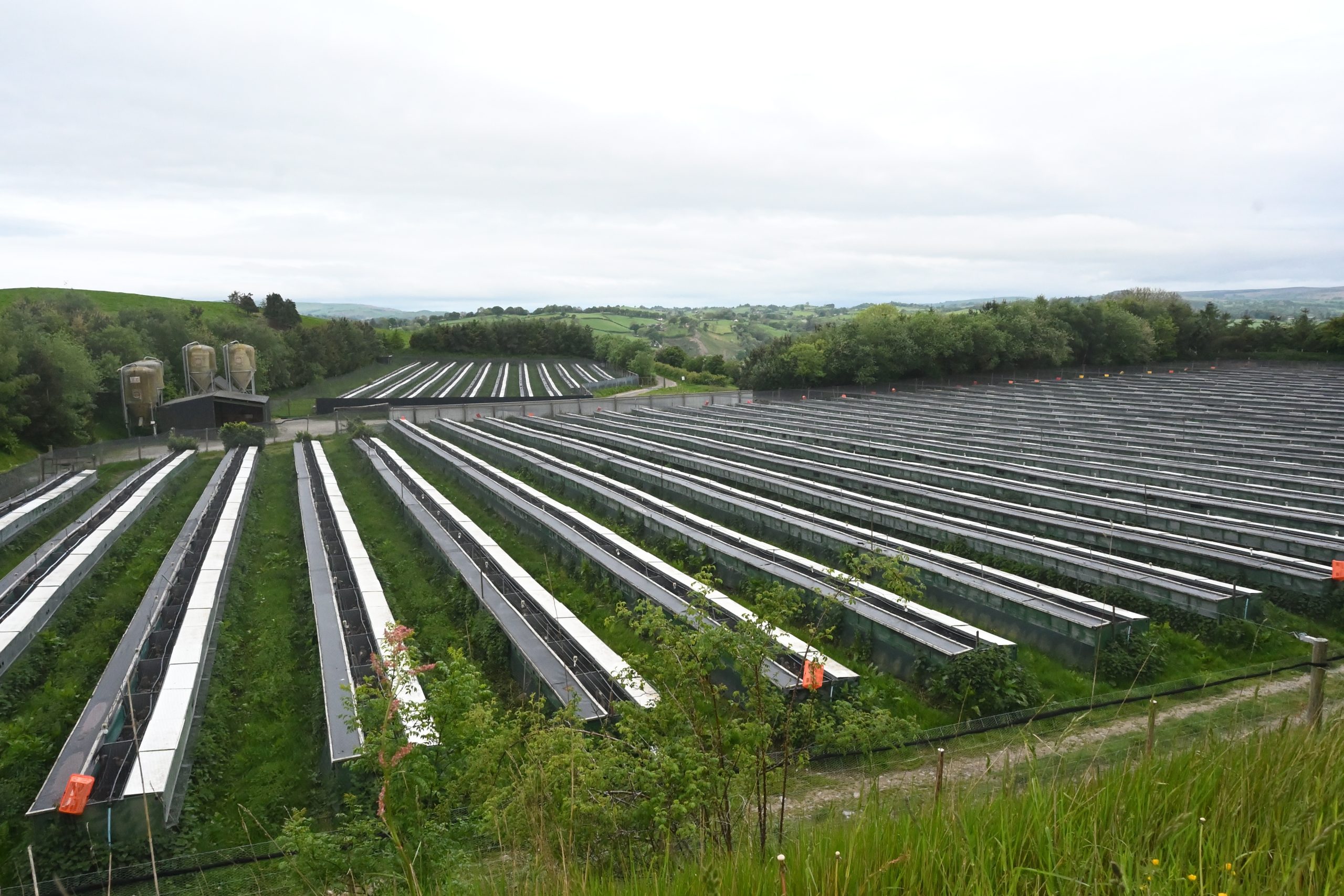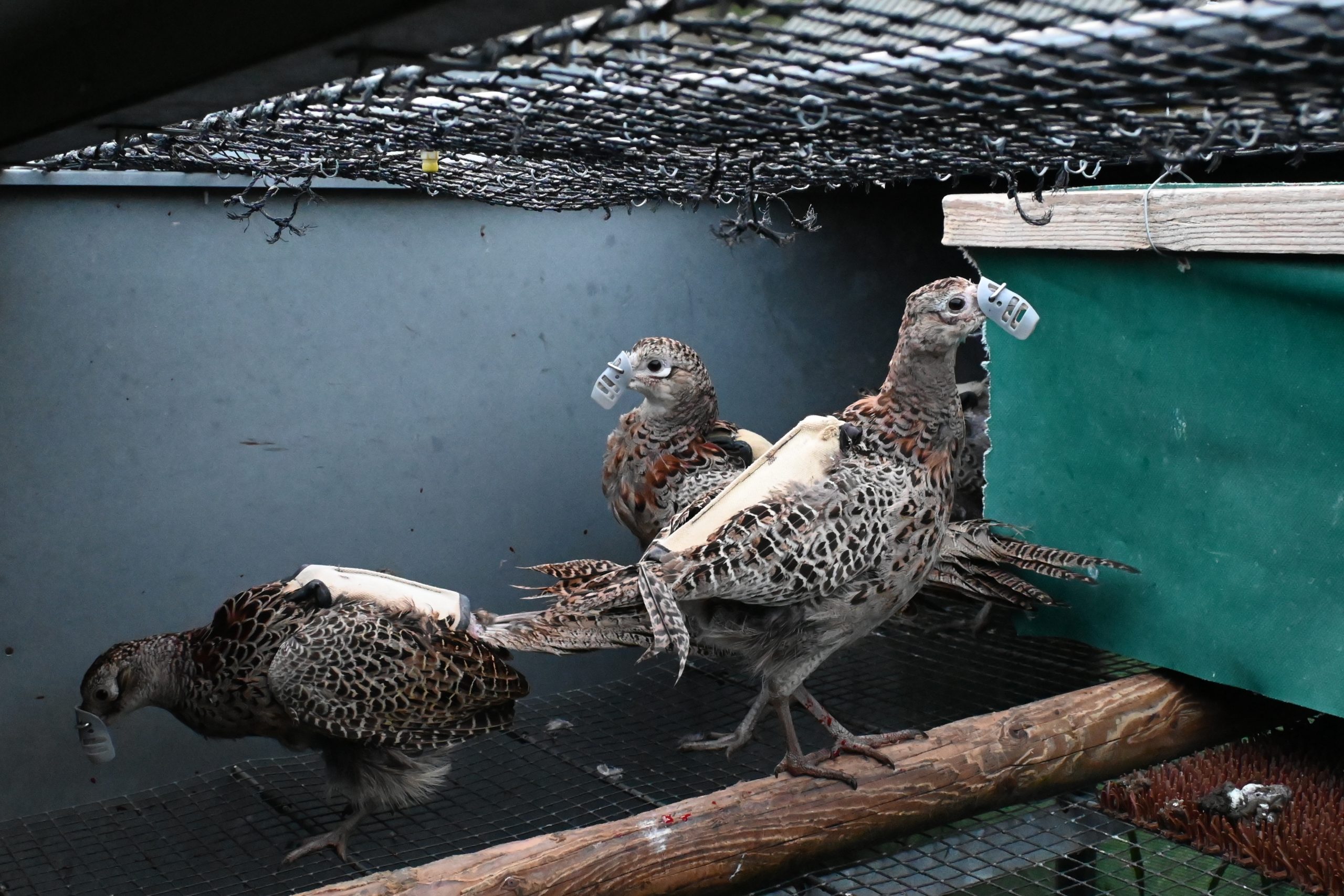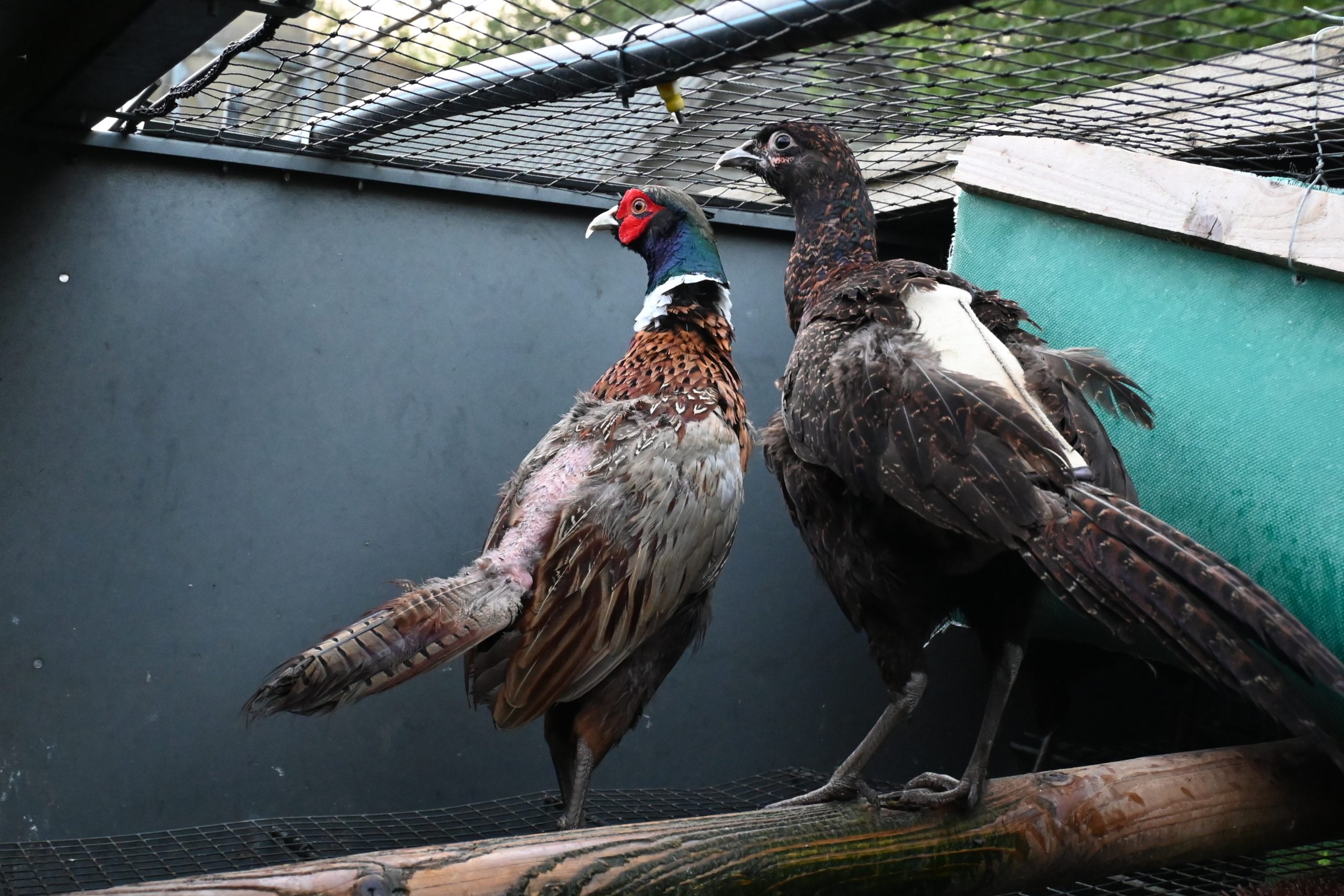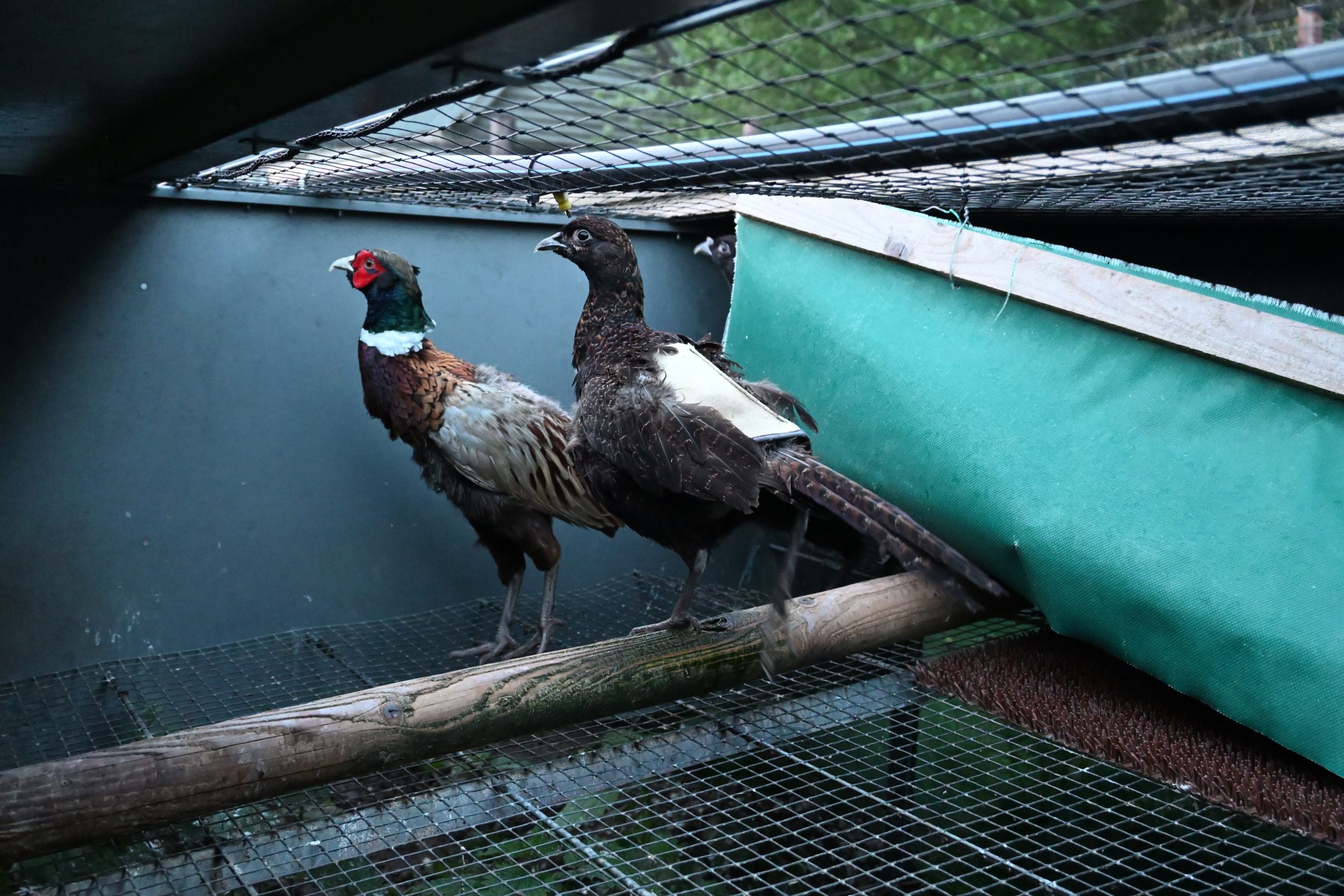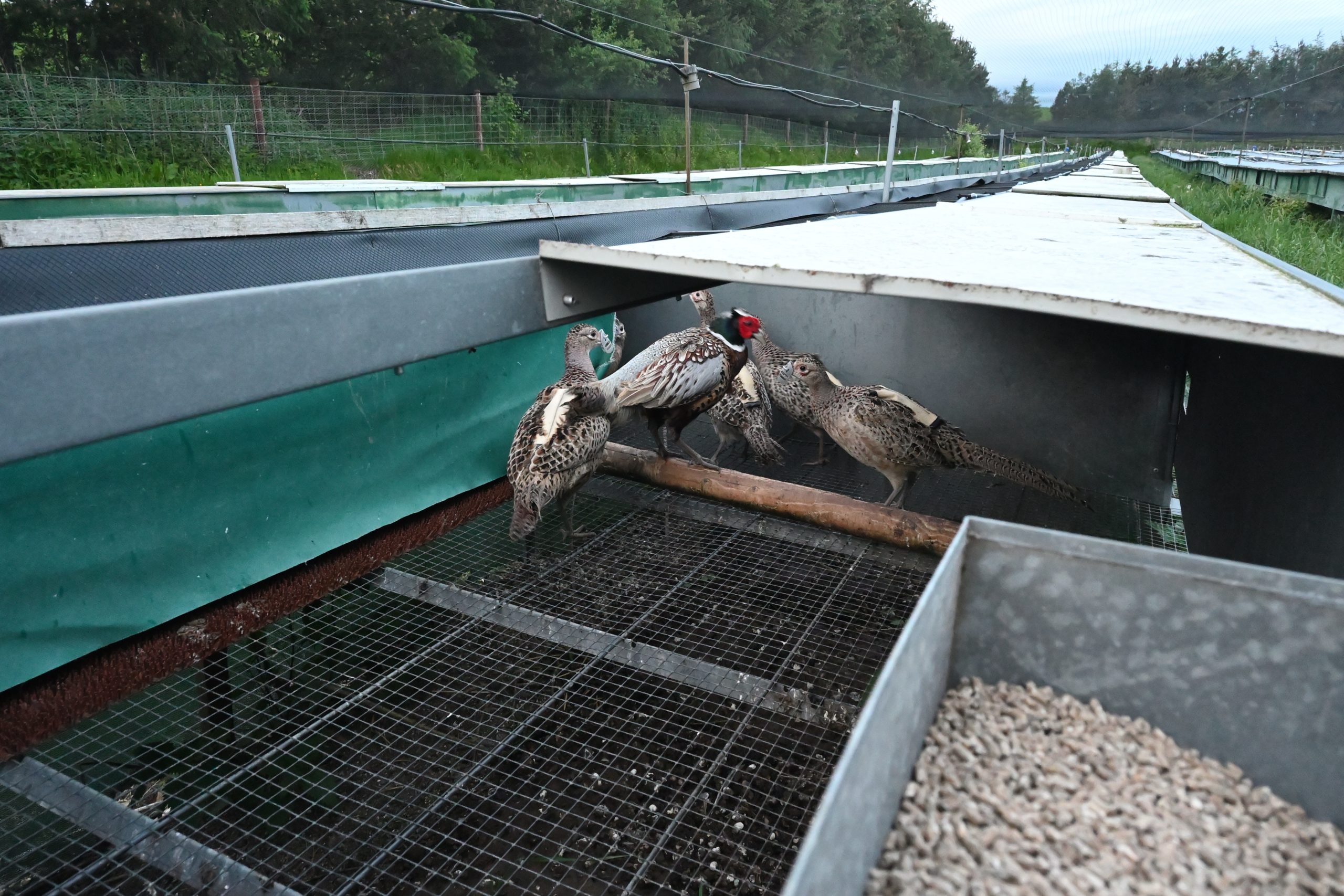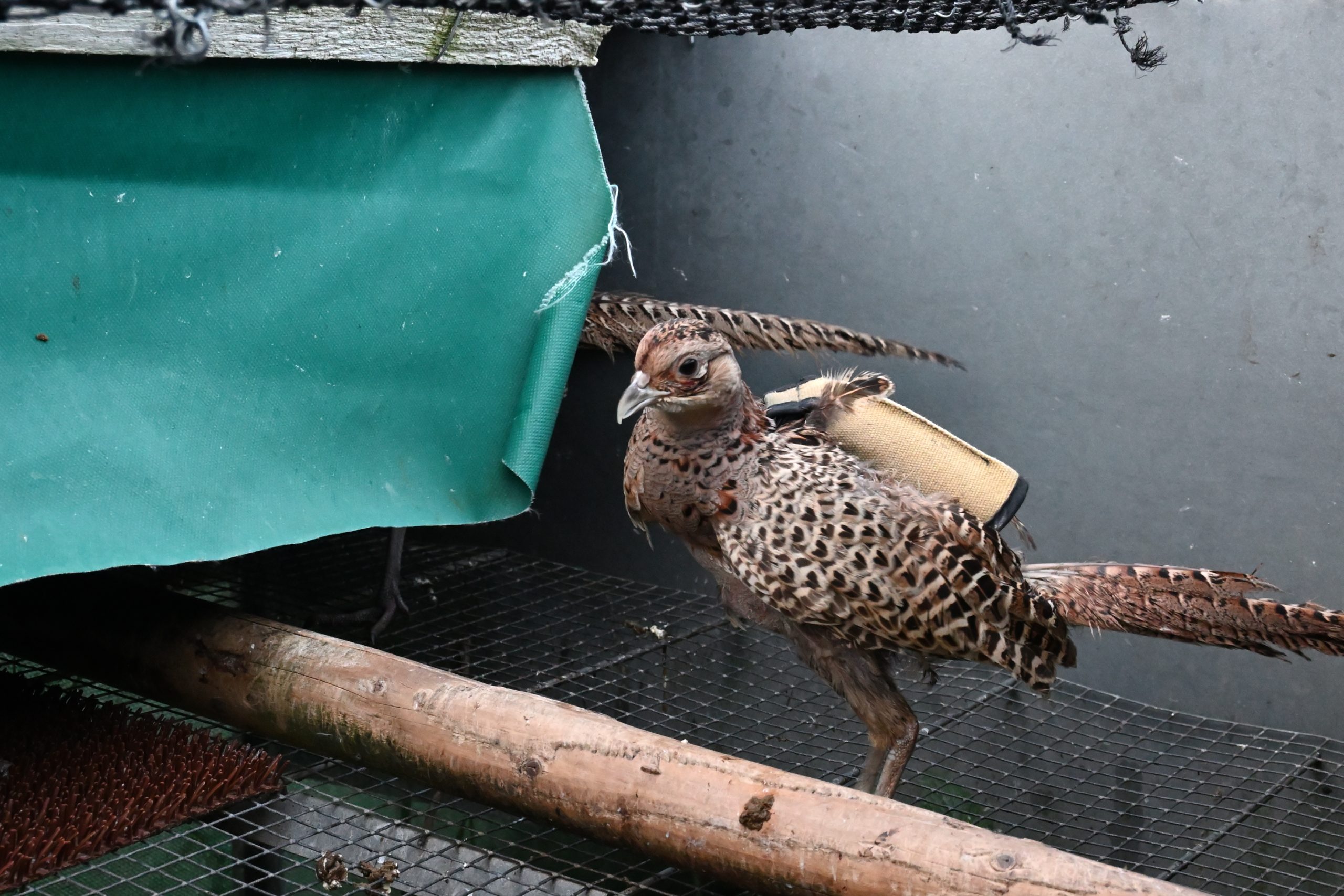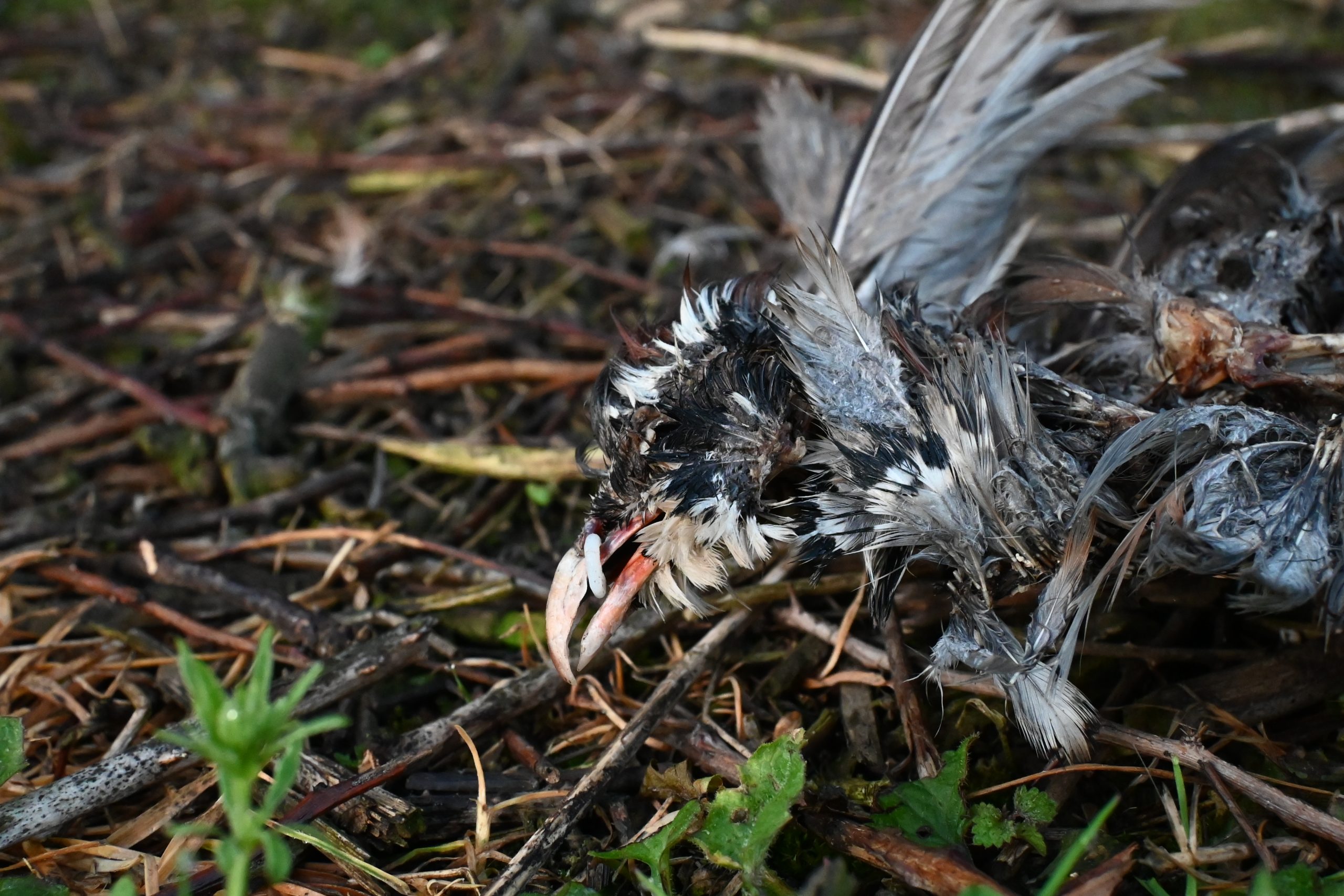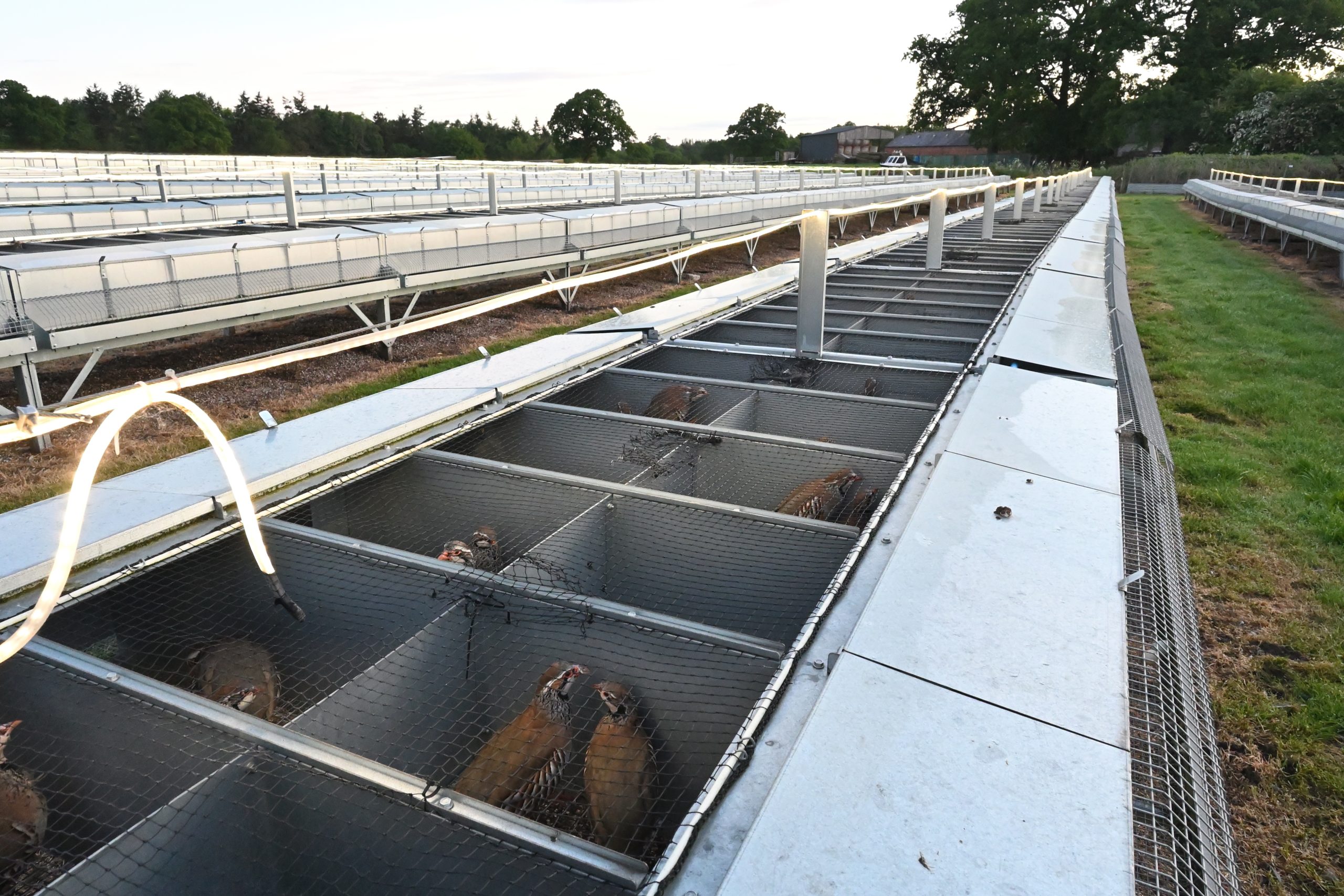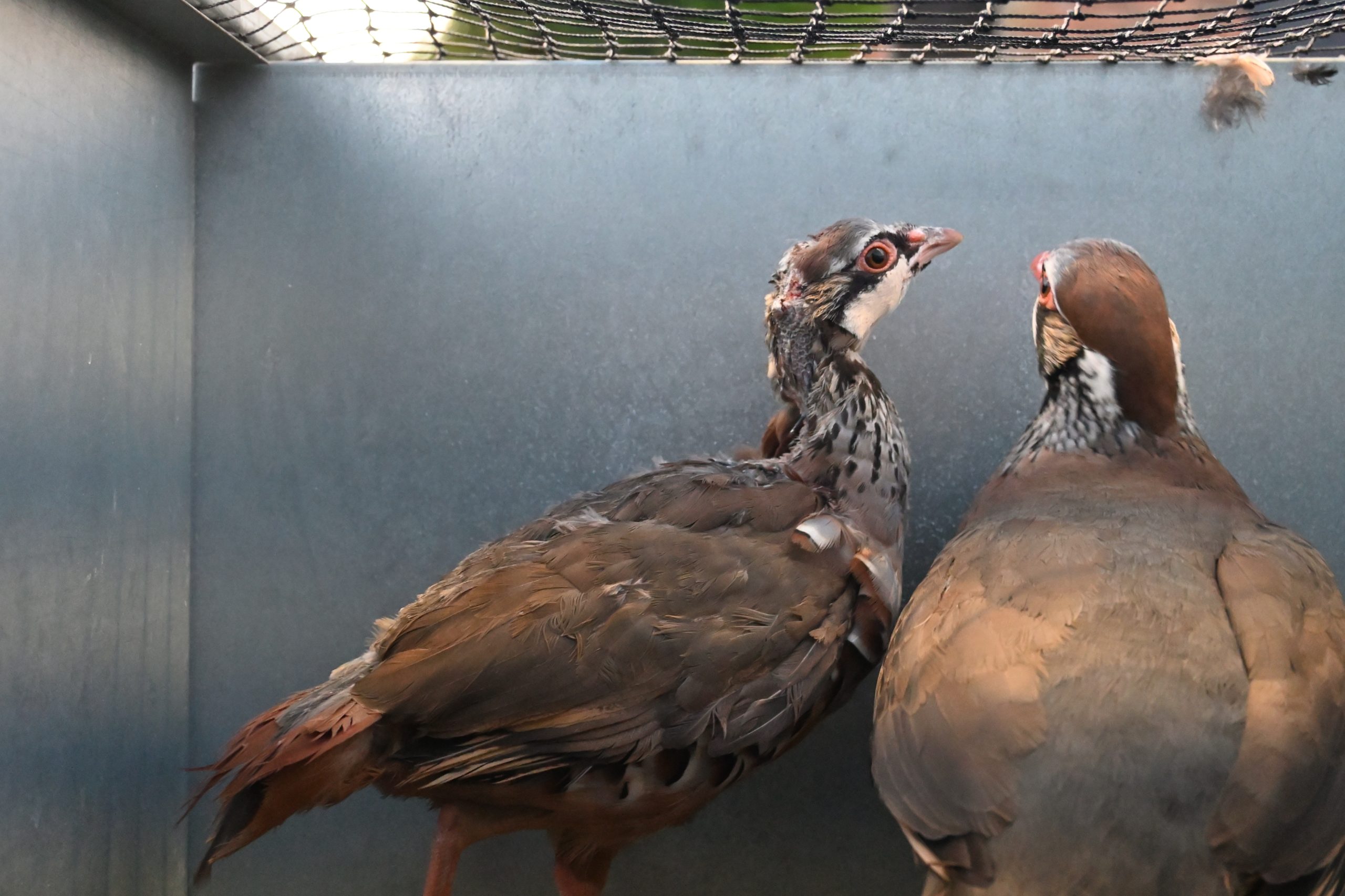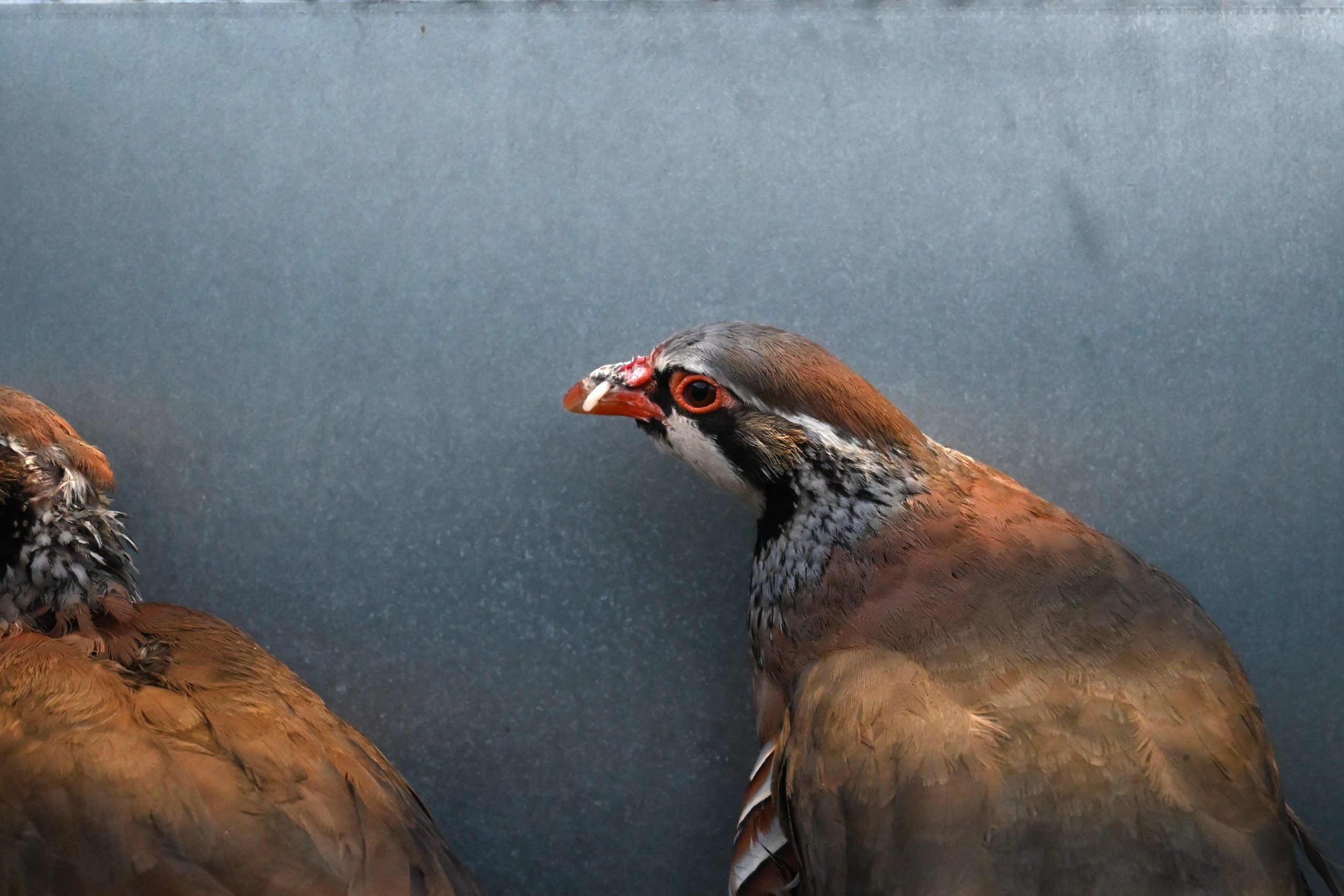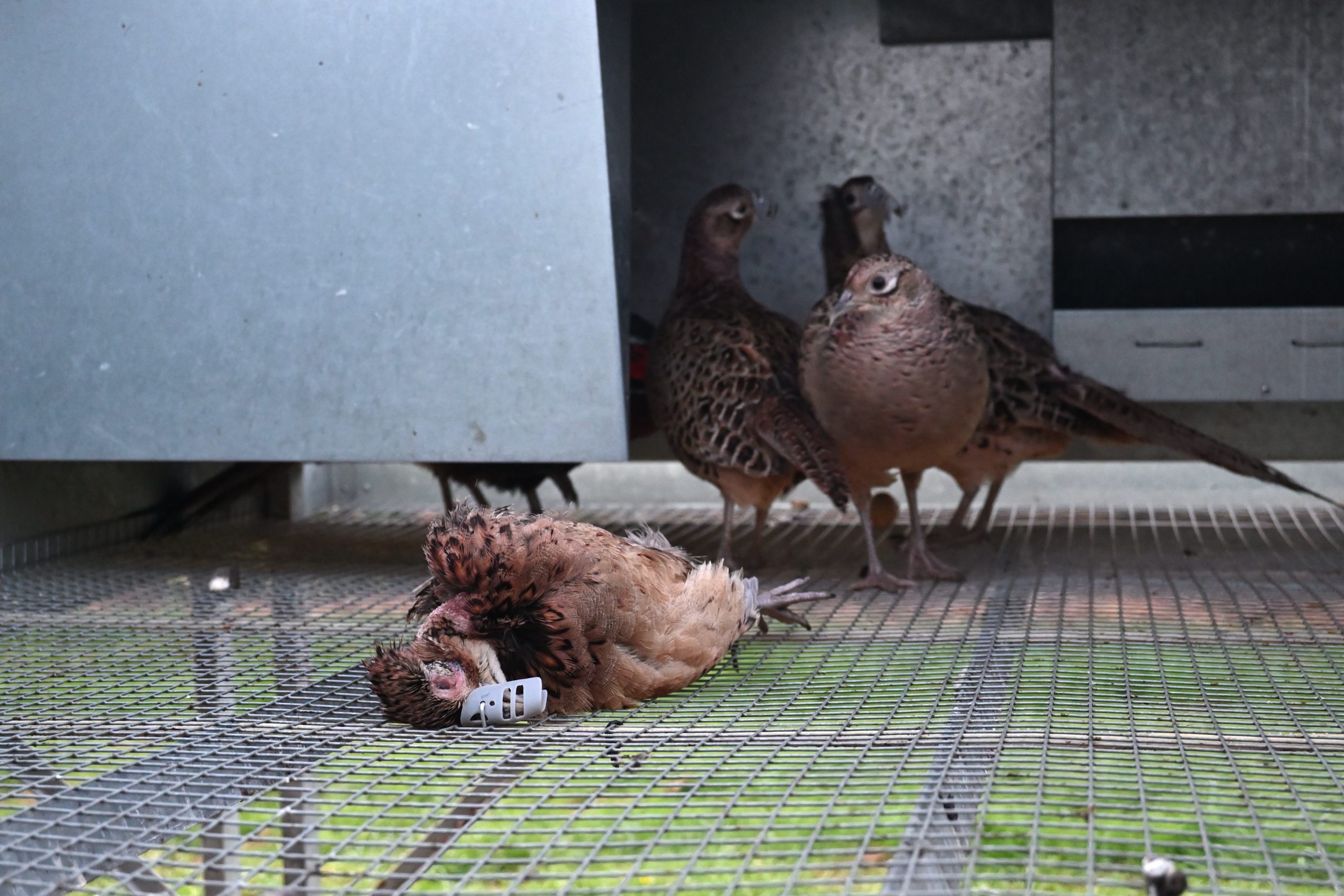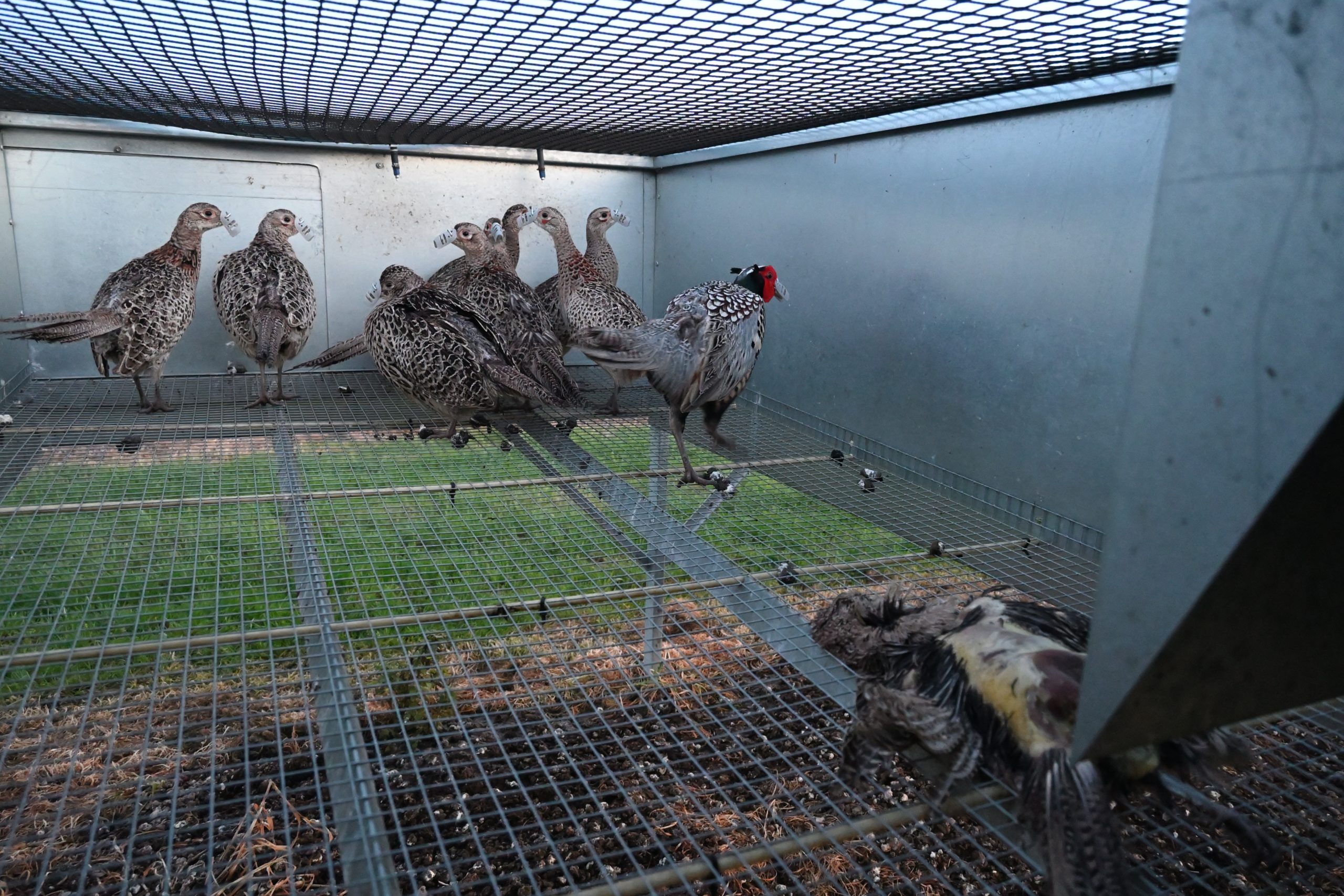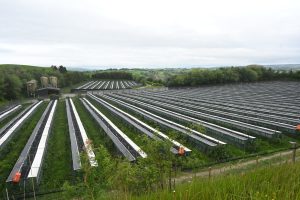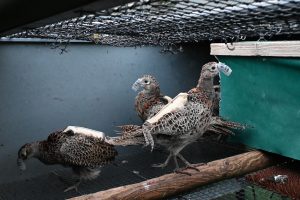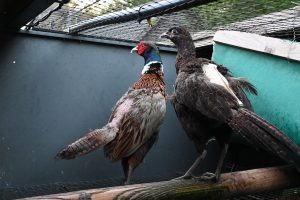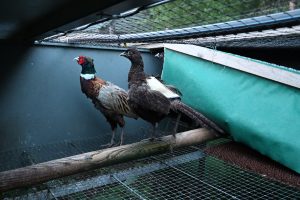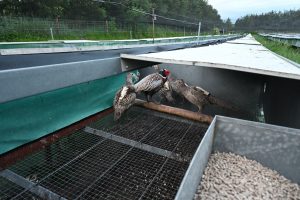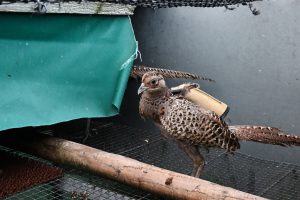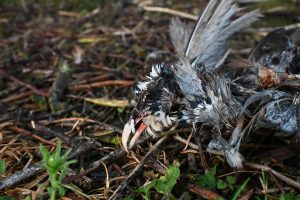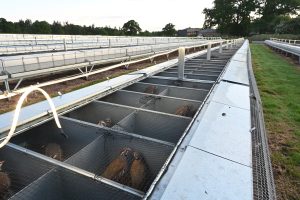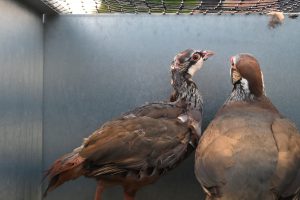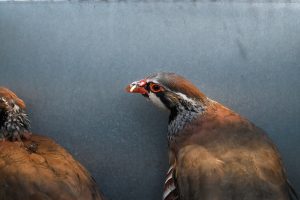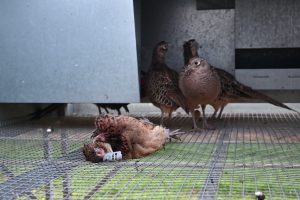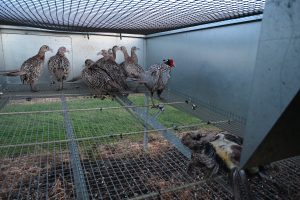Pheasants and Partridges in Wales – Pre-release
Caged, wounded and distressed: latest game bird farm investigation
Animal Aid has been investigating the game bird breeding industry in Wales and England since 2004, and in November that year our undercover footage was shown on BBC’s Countryfile programme. Our first major report, the following year, revealed in detail the horrors of the use of battery cages for breeding birds.
The birds are so stressed by being confined, that they repeatedly fly upwards in an effort to escape, and they attack one another out of frustration and lack of space. Often, the gamekeeper’s solution is to put clips on the birds’ beaks to restrict movement and dressings on the birds’ backs to prevent mating injuries. But of course, this does nothing to alleviate the birds’ anxiety and may even serve to increase it.
Since 2004, Animal Aid has made numerous visits to game farms in Wales and England (see below), cataloguing the miserable confinement of the breeding birds, their physical injuries and their anxiety. We have reported our findings to the relevant authorities, and repeatedly called for a ban on the use of the cages.
Our latest investigation has revealed that, almost 20 years later, nothing has changed. An inspection of two game bird breeding operations in Wales in May this year, found countless pheasants and partridges confined in dreadful battery cages on these vast, soulless industrial farms. See timeline, below, for details.
Says Fiona Pereira, Campaign Manager at Animal Aid:
Can you even imagine the level of outrage if cats and dogs were imprisoned in tiny barren cages, exposed to the cold, snow and scorching sun?
But, because these are ‘only’ pheasants and partridges, somehow it is deemed acceptable to confine them in these horrific cages so that their offspring can be used as living targets and shot for so-called sport. These beautiful birds, who should roam wild and free, deserve every bit as much of our compassion and help as cats and dogs do.
The Welsh government has already promised to outlaw the use of cruel snares in Wales, and in 2018 Natural Resources Wales banned the release and shooting of birds on the Welsh Estate, not least because polling showed that almost three-quarters of those questioned supported a ban on shooting birds.
We will be sending our latest findings to the relevant Welsh authorities and will call on the Welsh government to take the lead and ban the use of these cruel raised battery units that are used to imprison breeding game birds by the shooting industry.
We campaign for an end of the killing of animals for sport, but in the interim, the very least that can be done is to ban the use of battery cages for the breeding birds.
Notes
- In 2018 a poll commissioned by Animal Aid and the League Against Cruel Sports found that 74% of people in Wales thought that shooting birds should be illegal.
- On 9 July 2018, in a letter to the Chief Executive of Natural Resources Wales (NRW), the Environment Minister Hannah Blythyn stated: ‘Given the wider policy issues and concerns, the Welsh Government does not support commercial pheasant shooting, or the breeding of gamebirds or the birds being held in holding pens on the estate prior to release on the Welsh Government Estate.’
- In 2018, NRW confirmed that it would end the release and shooting of birds on the Welsh Estate which it manages on behalf of the Welsh government.
- The Welsh government has committed to bringing in a ban on snares.
Excerpts from Animal Aid’s investigations into the game bird industry in Wales, below.
May 2022: Animal Aid investigators visited two gamebird breeding sites in Wales: Bettws Hall (SY16) and Park Farm (CH4).
May 2022: Bettws Hall
Bettws Hall had raised breeding cages that were enriched with a laying screen, scratch pad (piece of astroturf) and a piece of wood on the cage floor to act as a perch. Many birds had feather loss on the backs and rumps with small open wounds. Most of the birds had beak masks fitted and most of the females had saddles fitted. There was a dying bird in one cage with several small open wounds.
May 2022: Park Farm
Park Farm had approximately eight double rows of raised partridge cages and ten rows of raised pheasant cages, some wooden, some metal. All were barren and without enrichment. A dead pheasant was filmed in two different cages. A few partridges were found with bits in the mouth/beak. Most of the pheasants in the raised cages had beak masks. Many of the pheasants in the raised cages had feather loss on their backs, including males. A few partridges also had feather loss on the necks.
June 2019: Bettws Hall, Powys
Investigators filmed eggs and what appeared to be live chicks being tossed into the macerator.
March 2019: Bettws Hall, Powys
Investigators reported: “four dead female pheasants in different cages, including two dead in one cage. Two of the dead birds were visible in the egg trays of the cages but had been left in place. Some of the dead birds has also been cannibalised on the rear.”
May 2018: Bettws Hall, Powys
Our investigators examined 20 pheasant cages and found that 18 of them were barren. Of the other two ‘enriched’ cages, one had a green ‘privacy’ curtain; the other contained a single brick. Inside one of the cages lay a bird dead, and there was a female pheasant with a head wound in another cage. A dunnock was trapped Inside a cage trap nearby.
March 2018: Bettws Hall, Powys
Our investigators found that all the cages inspected were barren, in contravention of the Code of Practice. Several of the female pheasants had escaped the cages and all still had beak shrouds fitted. There was a ‘catching up’ trap in the field with about ten birds inside, even though it is illegal to trap pheasants out of season. Our digital thermometer recorded temperatures between 0° and 1° C inside and outside the cages.
June 2017: Bettws Hall, Powys
Animal Aid investigators found pheasants kept in barren cages in contravention of the Code of Practice. One dead bird was left on top of the cages, which is a biosecurity concern under the Animal By-Products Regulations.
A digital thermometer was left inside the cages for 21 hours. It recorded temperatures (in centigrade) in the high 30s and low 40s (up to 41.2°C) over a continuous five-hour period.
June 2017: Natural Resources Wales, Powys
Animal Aid investigators visited Long Mountain Cwm Gwnen shoot and found 35 to 40 dead birds on the land. More birds were stuck in the wire mesh of the release pen, some still alive. They were freed from the mesh and put back into the pen.
May 2015: Bettws Hall, Powys
Animal Aid investigators found stressed pheasants in poor physical condition. The raised units that they were kept in had minimal enrichment – there were no nest boxes or areas for dust bathing.
May 2014: Bettws Hall, Powys
Animal Aid investigators found pheasants fitted with beak shrouds leaping at the wire mesh (‘scalping’). There were dead birds in the cages, which were ‘enriched’ only with one piece of wood and a green ‘privacy’ curtain.
